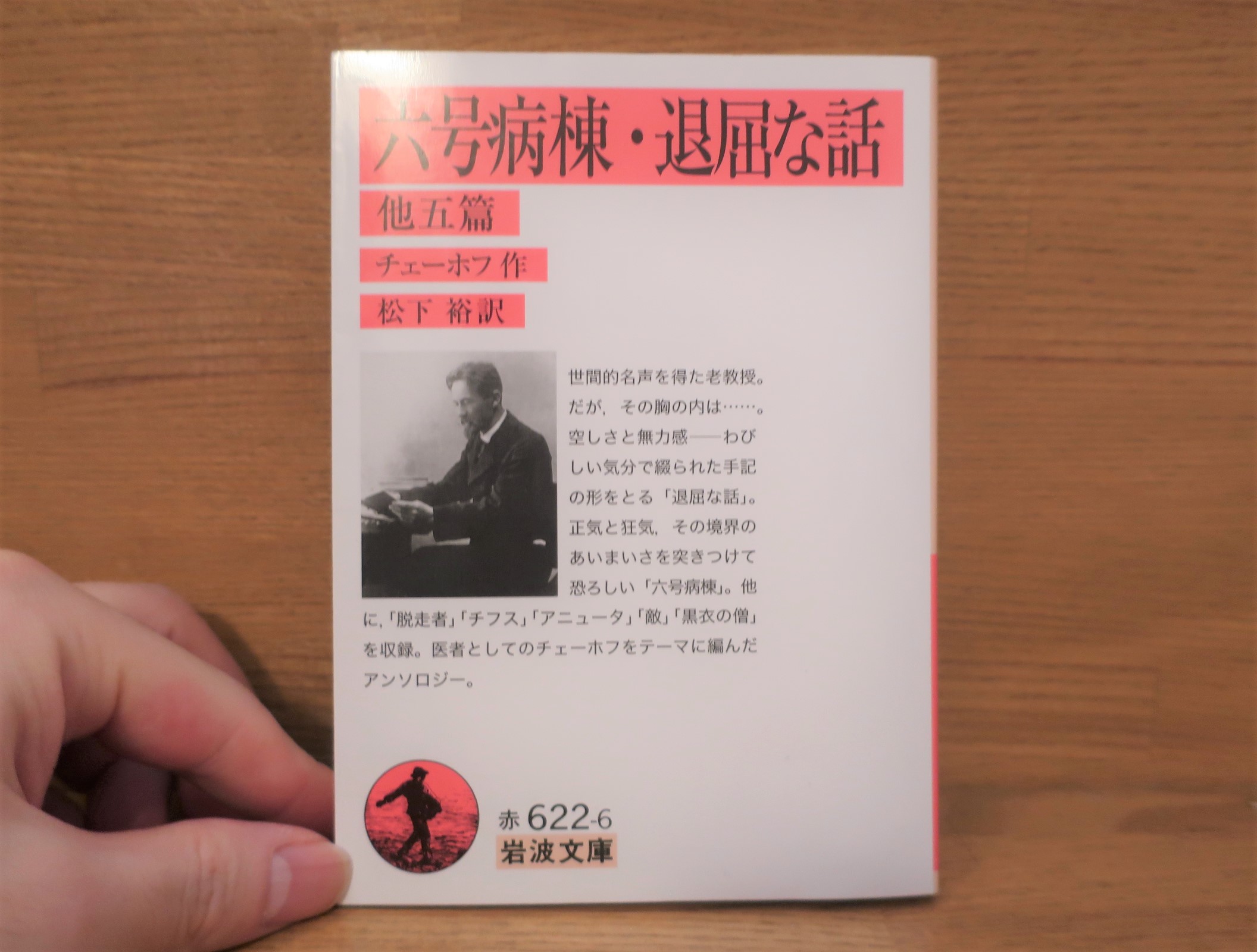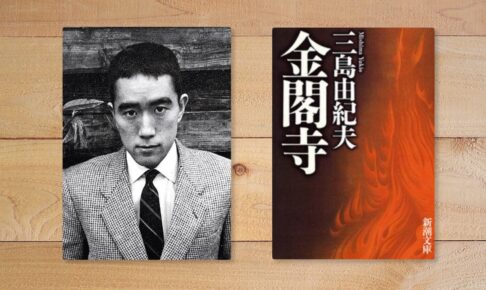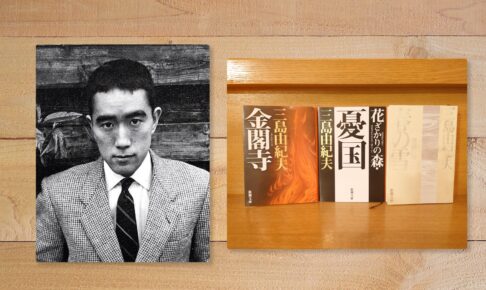Chekhov's "The Monk in Black" Synopsis and Thoughts - Is there a fine line between genius and madness? A great book that you can't help but think about.
The Monk in Black was first published by Chekhov in 1894.
I read "The Monk in Black," translated by Yutaka Matsushita, Iwanami Shoten, in "Ward No. 6: A Boring Story.
Let's take a quick look at the synopsis.
The protagonist Andrei Kovrin, a future academic hope with a degree in Philosophy Magistre (Doctor of Philosophy), already complains of neurological abnormalities in the first chapter. When he begins to show signs of it, he happens to receive a letter of invitation from Tanya Pesotskaya, the daughter of a benefactor, and decides to visit her in the countryside for recreation. The opening chapters are extremely upbeat. Tanya's father, Pesotsky, is a man who has taken good care of Tanya since she was a child. It had been five years since he had seen Tanya. (He had not seen Tanya for five years.)
Corbryn receives an enthusiastic welcome here and quickly becomes friends with Tanya. Everything seems to be going smoothly and peacefully. But these days, he is already playing with the apparition of the black-robed monk.
Corbryn asks Tanya to marry him during his stay.
Chikuma Shobo, Seiro SatoThe World of Chekhov's Art.P233
The protagonist, Corvelin, is the Hope of the Society. But he is already showing signs of psychosis, and he goes to his former benefactor for a rest.
He became friends with Tanya, the daughter of his benefactor Pesotsky, and all seemed to be going well. However, it was around this time that he began to have visions of the black-robed monk.
The apparition appears frequently and he enjoys conversing with a black-robed monk who is invisible to those around him. One day he has this exchange with the monk
I wish you could understand how much I enjoy listening to you!" Corblin said, rubbing his hands together in satisfaction.
That would be great.
'But I know, I know, that when you go, I will wonder what your true nature is, and I will feel uneasy. You are an illusion, a hallucination. Which means I'm psychotic and not normal, right?"
Why do you have a problem? Why do you have a problem with it? You are sick, you have worked yourself to exhaustion. But that means you have sacrificed your health to ideology, and the time is approaching when you will devote your life to ideology. What could be better than that? That is what all those who have been given noble qualities from heaven are striving for.
I wonder if I would still be able to trust myself if I knew I was mentally ill."
How do you know, then, that the geniuses the whole world believes in did not have the same vision? Besides, scholars now say that there is a fine line between genius and madness. My friend, the only healthy and normal is the mediocre crowd. It is only those who have their life's purpose in the present, the crowd, who are seriously irritated by the idea of a neurotic age, of overwork, of degeneration, etc."
Iwanami Shoten, translated by Hiroshi Matsushita, Ward 6, Boring Stories, p107-108
Of course, the monk was a hallucination of his own making. However, the monk was able to converse so well that it was hard to believe that he was hallucinating.
After this exchange, he is convinced that he is the chosen one and is immersed in a joyful, happy feeling. In this wonderful mood, he asks Tanya to marry him, and they are united. Little does he know that tragedy awaits them both...
Thoughts - From a Dostoevskyian Perspective
He has a mental illness from which he talks to the hallucinations he has created.
This isThe Brothers Karamazov.It is reminiscent of Ivan, a major character in He, too, is mentally ill and communicates with a demon of his own creation. He, too, communicates with his demons, even though he knows it is a hallucination.
This dialogue with the phantoms of his own creation is not only in "The Brothers Karamazov," but also in his early middle novels.Dual personalities."It is also a major theme in Dostoevsky himself is said to have attached great importance to dialogue with his alter ego, the illusion he created.
And what is interesting about this work is still the question of whether there is a fine line between genius and madness.
Corbryn was caught by his wife one evening talking with a black-robed monk. When his wife sees her husband talking to someone she cannot see, she is convinced that he is ill. She is convinced that he is ill, and he is committed to an insane asylum.
Months passed, and when he was discharged from the hospital and returned home, he was no longer the same person. He became gloomy, angry, capricious, difficult, and uninteresting, and his relationship with his family deteriorated rapidly. He told his wife, "I'm not going to let you go back home.
Why on earth are you trying to cure me? Bromine, loafing, hot baths, surveillance, fear at every sip, every step - it all adds up to making me look like a fool. I was crazy and paranoid, but in return I was vivacious, full of energy, even happy, funny and original. Now I'm sensible and hard-headed, but instead I'm just a plain person, no different from everyone else, and I can't stand the boredom of life. ...... Oh, how cruelly you have treated me! I had a hallucination, but who did it bother? I'd like to open the door. Who's trouble is it?
Iwanami Shoten, translated by Hiroshi Matsushita, Ward 6, Boring Stories, p125
Instead of no longer hallucinating, he lost his inspiration. He has lost his energy and happiness.
It is true that I no longer have hallucinations. However, the world has faded away, and I can only see things that I don't like.
LastI had a hallucination, but who did it bother? I'd like to break it off. Who are you bothering?is quite a strong word, isn't it?
And he goes on to say
'How happy Buddha or Mahomet or even Shakespeare must have been! They didn't have their ecstasies and inspirations forcibly cured by kind relatives and doctors!"
Iwanami Shoten, translated by Hiroshi Matsushita, Ward 6, Boring Stories, p126-127
If Mahomet had drank potassium bromide to cure his nerves, or worked only two hours a day and two hours a night, or drank milk, there would be nothing left after the death of that extraordinary man but what is left after the death of his dog. Doctors and kind relatives will ultimately make fools of mankind and destroy civilization by regarding ordinary people as geniuses. You have no idea."
Iwanami Shoten, translated by Hiroshi Matsushita, Ward 6, Boring Stories, p127
It is interesting that Buddha and Mahomet appear here. And not only religious figures, but also Shakespeare can be seen here.
What is genius? Conversely, what is madness? If thinking differently from others or seeing things differently from others is insanity, then geniuses are all lunatics in need of treatment.
And since the geniuses who are touted in the street are not geniuses after all, ordinary people are merely celebrated as geniuses. I am fed up with such a world," says Corbijn.
This is very thought-provoking.
What is genius in the first place? Isn't it a paper-thin form of insanity?
This is a very interesting subject. And at the same time, it is frightening.
In this work, such issues of genius and insanity are dealt with in Chekhov's typical concise style. What happens to Corbuline in the end is also a highlight. I was personally quite shocked by this work. I highly recommend it.
The above is a summary of "Chekhov's "The Monk in Black" - Is there a fine line between genius and madness? A masterpiece that one cannot help but think about".
Next Article.
Click here to read the previous article.
Click here for a list of Chekhov's recommended works.
Related Articles







































